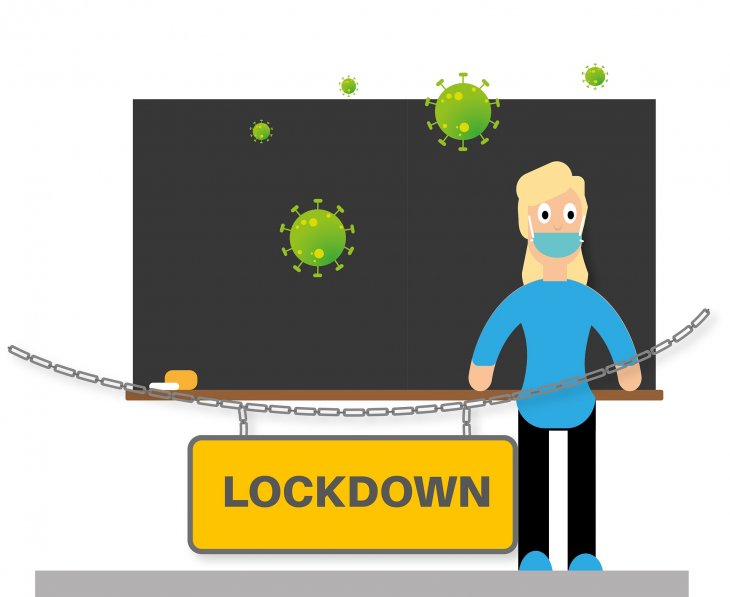The most recent debate concerning school closures has focused on vulnerable children and how school closures will cut them off from a place of safety. While the Children’s Ombudsperson and others are concerned about the impact of school closures on the most vulnerable children, others express doubts as to what extent school is, or should be, a refuge for them.

Illustration: Pixabay
Recently, the Conservative politician Kristin Clemet wrote that too much has been made of the concept “vulnerable” and that school cannot replace family to protect vulnerable children. Others suggest that people who have other motives for wanting to keep schools open are exploiting vulnerable children to support their case.
For some children, school is safer than home. But irrespective of this fact, the statement is an unfortunate over-simplification in the debate about school closures, which have enormous short- and long-term consequences, both in Norway and globally. School closures are about so very much more than vulnerable children. They are about all children.
The consequences for children are so significant that it is impossible to defend closures as a proportionate response. Although the Norwegian Institute of Public Health (NIPH) has asked for (randomized) studies of the effects of school closures, we have no data showing the precise extent to which school closures reduce infection. The consequences of lost learning, however, are well documented and serious.
We are looking at months of accumulated lost learning over what will soon be two years. We see the entrenchment of social inequalities, whereby those who are struggling already will struggle even more, and those struggling psychologically will have less social interaction. School closures and remote learning have weakened the link between schools and children, and have also made it far harder to identify and follow up children in difficult circumstances.
The long-term effects of the school closures to date, and of possible future school closures, will be a research topic for a long time to come. With these consequences in mind, it was strange to observe how some parents called for schools to close in the run-up to Christmas.
For middle-class families with home offices, it was no doubt easy enough to have their children learning remotely at home so that they could celebrate a healthy Christmas. But for a single mother who had to go for work, or for families with poor language skills, the diminished follow-up and assistance available with remote learning will have far more negative and unequal consequences. School closures establish and entrench pre-existing divisions and inequalities in Norway. We must take this very seriously.
Research into the effects of school closures on vulnerable children, shows a negative effect on their achievement, especially among younger children, and for children from families with less education and lower incomes. School closures are associated with poorer mental health, particularly among older children, as well as among children from ethnic minority backgrounds.
Education is linked closely to future living standards and life expectancy. Because school closures require parents to stay home from work, families suffer major economic consequences. Those who have a poorer education due to school closures may experience future lost income, as well as a consequent reduction in life expectancy, which is closely linked to a lack of education. These are serious permanent harms that go beyond the immediate issue of weeks of lost learning.
Teachers, like nurses and other key workers, have kept going throughout the pandemic. It is understandable that teachers are worried about getting infected. At the same time, almost all teachers are vaccinated, few are over 60, and their risk of serious disease is very low. In contrast, there is a serious and well-documented risk that school closures will have long-term effects on children.
- Are children’s needs and rights being heard?
- Who is putting the children’s case?
- And how should we compensate children for their lost learning and give them the education that is their constitutional right?
As conflict researchers, we see the enormous general consequences of wars and crises for children in terms of death, damage to health, and not least education. In some places, the risks of attending school are too great, and children miss out on important education. But even in wars and crisis situations, teachers, parents and schoolchildren do everything they can to ensure that children are able to go to school, even at considerable risk. Maintaining uninterrupted education is by far the most important thing for us to do in this pandemic. Children are our future, and we as parents should demand that all of our children have an education that is just as good as it was before the pandemic.
Even in times of crisis, children must go to school. If they do not, we risk ending up with a disadvantaged generation. My New Year’s wish for 2022 is for school closures to be removed from the pandemic response toolkit. This is not about controlling infection; it’s about the future of our children.
- Andreas Forø Tollefsen is a Senior Researcher at PRIO, and parent of a 2nd grader and a 4th grader
- This text was first published in the Norwegian daily Klassekampen 4 January 2022
- Translation from Norwegian: Fidotext